The Cost of Being Sure
A confession from a recovering know-it-all
“I don’t know.”
Three words that shouldn’t feel like failure—but often do.
They’re small. Quiet. Almost weightless. But for me, they land with a thud. Heavy with shame. Heavy with the pressure to know better, to be better. To have a plan, a direction, an answer.
For a long time, I prided myself on always knowing. I was the one who made quick decisions, ordered food for the table, and had an answer ready when someone asked in the boardroom, “What do we do?”
I wanted to be the person who had it all figured out. My identity was built on being dependable—on being the one people could count on to know, to lead, to decide.
Until one day, I typed into ChatGPT: “I don’t know what I want. Help.”
That was the first time I admitted it: I didn’t want what I had worked so hard to get. I had spent months building a system for the business, months closing clients—every call, every pitch, every follow-up—and I landed them. But midway through the work, I felt it again: this isn’t what I want.
And it wasn’t the first time. For the past two years, I’ve poured myself into goals I was so certain I wanted. But something always felt misaligned. And over time, that misalignment made me question everything—including my ability to trust myself.
The Culture of Knowing
We live in a world that worships certainty. We’re taught to admire people who know what they want, speak in declarative sentences, and follow linear paths.
As children, we earn praise for having the right answers. In school, we’re trained to raise our hands only when we’re sure. Our workplaces reward conviction over contemplation.
I once heard Oprah said that stuck with me: Successful people are successful because they know what they want.
I took that to heart. I believed that to be successful, I had to be certain. So I forced myself into knowing. I chased clarity from others. I consumed advice from people who seemed to have it figured out. I followed their frameworks. Just trust the process, they said.
And because I didn’t trust myself, I did.
This is what happens when we feel lost—we outsource our truth. We hand over our direction to strangers on social media, to leaders selling their vision, to people declaring what’s best or “right” for us.
We are so uncomfortable with the idea of not knowing, we convince ourselves someone else must have the answer—because the alternative feels terrifying.
The Cost of Certainty
The need for certainty is what’s making us suffer. We think if we just know—what we want, who we are, how it ends—we’ll finally feel safe. Settled. In control. But research tells a different story.
People with low tolerance for uncertainty consistently report higher levels of anxiety, depression, and overall dissatisfaction—not because their lives are objectively worse, but because not knowing feels unbearable.
One study in BMC Psychiatry found that uncertainty itself—not the actual circumstances—was the strongest driver of emotional distress during the pandemic. Other research connects this intolerance to obsessive thinking, negative coping, even a loss of meaning in life.
But it’s not just the fear of uncertainty that hurts us. It’s the false certainty we cling to that keeps us stuck.
We suffer when we hide how disconnected we feel—because we’re certain they’ll leave if we say it out loud.
We suffer when we keep producing on empty—because we’re sure rest means irrelevance.
We suffer when we stay in jobs that drain us—because we’re certain it’s too late to pivot.
We suffer when we shrink our dreams—because we’re sure our partner won’t come with us.
We suffer when we hide who we are—because we know we won’t be loved if we’re fully seen.
Sometimes the things we’re so sure of are just beliefs we’ve never questioned. Stories we’ve inherited. Masks we’ve worn for so long, we forgot they’re not our skin. And they leave us feeling empty.
When I Let Go of Certainty
The moment I typed, “I don’t know what I want,” something cracked open. It felt like failure—but it was actually an invitation.
I didn’t have the full picture. I just knew something needed to change. And letting myself stay in that space—not knowing, not rushing—was the most freeing thing I’d done in years.
It opened up parts of me I hadn’t even thought to question.
I was so sure marketing was the only way I could offer value—until I realized I hadn’t explored what the rest of me even held.
I was so sure that person was it—until I saw how much of myself I was shrinking to make that true.
I was so sure I’d manifest millions—when I hadn’t even paused to ask what I truly wanted to create.
What I’ve learned is this: the more I make peace with what I don’t know, the more I trust what I do.
I got clear on what matters to me. I uncovered pain I hadn’t been brave enough to name. I started noticing what truly lights me up. And I began to share—not because I had it all figured out, but because I no longer needed to be certain or right to speak.
Not knowing isn’t weakness. It’s a return. A recalibration. A soft landing into the truth that we are allowed to change, allowed to re-choose, allowed to ask better questions.
Letting go of certainty didn’t make me weaker. It made me available—to curiosity, to honesty, to the parts of myself I had silenced in the name of being sure.
And in the quiet of not knowing, I met the part of me that always has.
